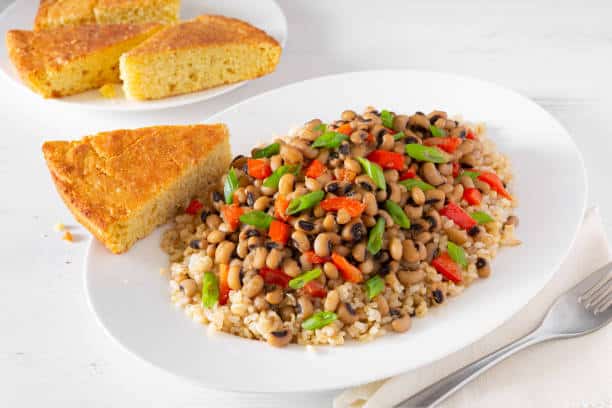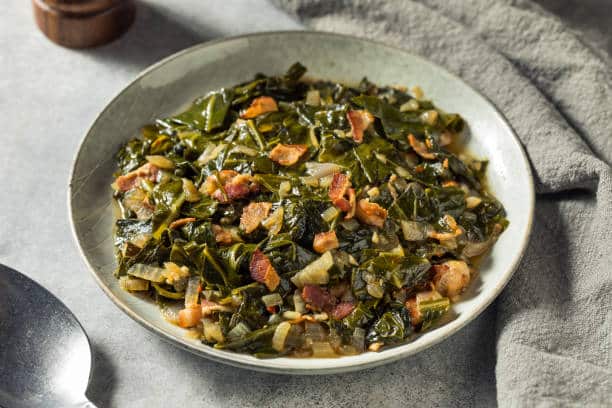
When we think of Southern soul food, we often think of spice. Meals with a kick that contain ingredients like cayenne pepper, hot sauce, and other herbs and spices known for their rich flavors.
But what about Crohn’s sufferers?
If you’re one of over 700,000 Americans impacted by this chronic inflammatory bowel condition, the symptoms are all too familiar. From abdominal pain to diarrhea and fatigue, the wrong foods can set you off like no other.
But here’s the real kicker. If you want to enjoy Southern soul food recipes you’ve come to love, you can! With some moderate modifications, even the worst Crohn’s sufferers can relish gut-friendly, nutrient-rich options.
Let’s explore how to adapt soul food staples, incorporating ingredients like sweet potatoes, collard broth, baked turkey, and lactose-free yogurt, all backed by scientific evidence.
Crohn’s and the Role of Diet
Crohn’s disease involves inflammation of the digestive tract, often triggered by genetic, environmental, and dietary factors. Depending on the person, high-fiber, high-fat, and processed foods can exacerbate symptoms in some patients. What this means is simple. It’s smart to eat a ‘low-residue diet.’
These diets are low in fiber and easy to digest, and when paired with anti-inflammatory foods, like those rich in omega-3s or curcumin (found in turmeric), can greatly lower inflammation markers.
Fortunately, by embracing African-American culinary traditions, with a few modifications, it’s easy to enjoy the foods you love.

Low-Fiber Veggies
Traditional soul food includes vegetables like sweet potatoes and collard greens, and the good news is, they can be adapted for Crohn’s. Raw and high-fiber vegetables can irritate the gut, but cooked, low-fiber options are easier to digest. Sweet potatoes, a soul food staple, are rich in vitamins A and C and have a lower fiber content when cooked and peeled.
Modifying these recipes is simple. For a sweet potato mash, replace candied yams (high in sugar, a potential trigger) with mashed sweet potatoes. Boil the peeled sweet potatoes until soft, mash with lactose-free yogurt for creaminess, and season with a pinch of ginger. Ginger’s gingerol compounds reduce gut inflammation, which works nicely with the potatoes’ antioxidant properties.
You can likewise use collard greens for a soothing, gut-friendly broth. Simply simmer collards with low-sodium vegetable stock, strain the greens to reduce fiber, and season with turmeric.
Both the sweet potato mash and the collard broth can serve as side dishes or light meals. If you want, blend leftover collard broth into a smoothie with bananas for a nutrient-packed, low-fiber breakfast.
RELATED: Soul Food Remix: Five Soul Food Recipes Without The Bad Stuff
Lean Proteins
Protein is essential for tissue repair and immune function, but fatty meats like pork, which are common in soul food, can actually be quite bad for flare-ups. Because of their high saturated fat content, pork dishes should be swapped for lean proteins, such as baked turkey or chicken. These two choices also provide essential amino acids without gut irritation.
Ready to modify?
Start by switching out fried or smoked turkey wings for oven-baked ones. Marinate with olive oil, turmeric, and paprika, then bake at 375°F for 45 minutes. Fortunately, olive oil’s monounsaturated fats have anti-inflammatory effects, while turmeric adds flavor and gut-soothing benefits.
You can also enjoy a modified recipe for chicken and dumplings, if that’s one of your favorites. Tweaking this dish is quite easy. Simply replace any creamy, dairy-based sauces with a broth-based version using lactose-free yogurt. Just ensure that you choose lean chicken breasts and small, well-cooked dumplings made from refined flour.
The goal here is to minimize fiber, while the lactose-free diet reduces bloating caused by Crohn’s. Whether it’s for a holiday gathering or a weekly dinner, these recipes are delicious and nutritious for any appetite.

Anti-Inflammatory Spices
Soul food’s bold flavors come from spices, but it’s also those spices that can trigger all kinds of problems for Crohn’s sufferers. While harsh spices like cayenne can irritate the gut, milder options like turmeric and ginger are well-tolerated and beneficial.
Want to make a good turmeric seasoning everyone will love? Begin by adding 1/4 teaspoon of turmeric to broths, rice, or vegetable dishes. Pair with a pinch of black pepper to enhance curcumin absorption, which ensures you get all the powerful anti-inflammatory benefits.
Ginger tea is also a big draw for many foodies. To brew fresh ginger tea, steep sliced ginger in hot water, or add grated ginger to soups. Ginger reduces nausea and gut inflammation, making it perfect for those bad-symptom days.
The reason these two spices work so well is due to their impacts on inflammatory pathways like NF-kB. These spices also enhance flavor without relying on salt or sugar, which can exacerbate Crohn’s symptoms.
RELATED: Vegan Soul Food is Good – 5 Vegan Soul Food Recipes
Lactose-Free Yogurt
Dairy is one of the most common Crohn’s triggers, and is often used in soul food dishes like cornbread or macaroni. Lactose-free yogurt, however, offers a creamy alternative that’s easier to digest. According to research from Gut Microbes, lactose-free dairy products reduce bloating and diarrhea in lactose-intolerant Crohn’s patients.
So mix it up! For cornbread toppings, replace buttermilk with lactose-free yogurt in a cornbread batter. You should also use refined cornmeal to keep the fiber content low. Serve as a side with baked turkey, and you’ve got a savory meal the whole family can enjoy.
As for creamy sauces? Use lactose-free yogurt in place of cream for gravies or casseroles. Add turmeric or ginger to flavor, and enjoy their benefits as well. You can incorporate these into breakfast, such as yogurt with mashed bananas, or as a base for dips at social gatherings.
A nice yogurt-based dressing with lemon juice and ginger is also great for salads and veggies.
With lactose-free yogurt, you’ll still reap the pros of probiotics, which can help improve gut microbiota balance. In other words, great for keeping your digestive tract in order.
Regardless of what you choose to make, always stay aligned with some basic principles. Start small, modifying one dish at a time, like swapping fried chicken for baked. Also, remember to keep a food diary to track triggers, as recommended by the Crohn’s & Colitis Foundation.
When cooking, aim to go slow and low. Slow-cooking vegetables and proteins softens textures, which makes them a lot easier on your gut. Secondly, make sure to avoid triggers. Skip high-fat meats, raw greens, and spicy peppers. And thirdly, consult a dietician if you’re struggling or have any questions or concerns. Professionals can personalize recipes, especially if you have specific triggers or nutrient deficiencies.
Southern soul food, with its rich flavors and comforting traditions, doesn’t have to fall to the wayside. You can enjoy your favorite recipes – with some delicious tweaks – any day of the week. All it takes is a little practice, some individualized choices, and you’ll be eating like never before!








